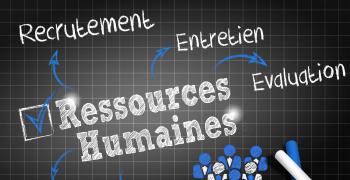
Sales Profile-R: The Benchmark Tool for Assessing Sales Talent
While personality assessments help define part of a sales profile, they’re often not sufficient to assess the specific sales-related aptitudes essential for success.

While personality assessments help define part of a sales profile, they’re often not sufficient to assess the specific sales-related aptitudes essential for success.

Psychometric tests? Yes—but not just any. We're talking about scientifically validated, digital-ready tools that’ll become your go-to ally for making HR decisions that are calmer, fairer, and more strategic

Recruiting a manager is a strategic decision that directly impacts team performance and overall business success. A manager must not only possess technical expertise and solid experience but also demonstrate leadership, sound decision-making, emotional intelligence, and adaptability.

The HR field faces a significant challenge: the growing mismatch between traditional recruitment methods and the evolving demands of the labour market. CVs, interviews, and intuition alone are no longer sufficient to identify talent capable of adapting to the technological and organisational transformations we are experiencing.

An employee struggling to integrate into the team, a newly promoted manager finding it difficult to embrace their role, a salesperson failing to meet their targets… In an SME, the consequences of a poor recruitment decision or an unsuitable promotion are immediate: reduced productivity, disrupted team dynamics, and rising direct and indirect costs.

By fully leveraging the potential of these tests, HR professionals can go beyond simplistic labels to truly understand their candidates.

The GAAT (General Analytical Aptitude Test) is a key tool to evaluate and enhance the critical thinking of your employees, preparing them to successfully tackle professional challenges.

In the pofessional path, we don’t choose our interests; we reveal them! And to do so, an interest test allows us to identify them.

The purpose of psychometric tests, through the skill profiles sought, seems to be a universal constant. But how is it possible to arrive at these conclusions when each country has its own cultural nuances in terms of language, background, professional outlook, interpersonal relations, etc.?

Who has never been subjected to a psychometric test? There are few people who can still claim this. And if it’s the case, it’s only a matter of time.

Do you use psychometric assessments to recruit, orient, coach or conduct skills assessments? It's a great way to make your business more reliable! With these assessments, you are able to seek relevant but also decisive information to fuel discussions and guide reflections.

Psychometric tests are key elements in providing complete and objective data in order to make the right decisions in recruitment and talent management.

Data is now at the heart of all our decisions. Our hyper-connected world generates more than 2.5 trillion bytes of data every day. And that isn’t even close to the amount of data that our brain can process in less than a second. So in terms of recruitment, who to entrust our decision-making: data or our intuition? This is the Cornelian dilemma that haunts recruiters today more than ever. Smart Data: an intelligent asset?

The use of robustly designed psychometric tests provides valuable insights into individuals and their capabilities, but implementing them into an organisation’s recruitment process can constitute a significant investment for a potentially cash-strapped HR department.

Psychometric tests are essential for providing complete and objective data in order to make good recruitment and talent-management decisions.

The pursuit of data has become a vital part of any decision-making process, and those who work in the field of human resources know this only too well. It is a question of obtaining relevant and objective information about potential employees, putting coherent guidelines in place for tracking employee performance, and having clear ideas about talent mobility.
Newsletter:Empowering Talent
Your monthly appointment to explore current HR challenges and key issues.
Subscribe on LinkedIn